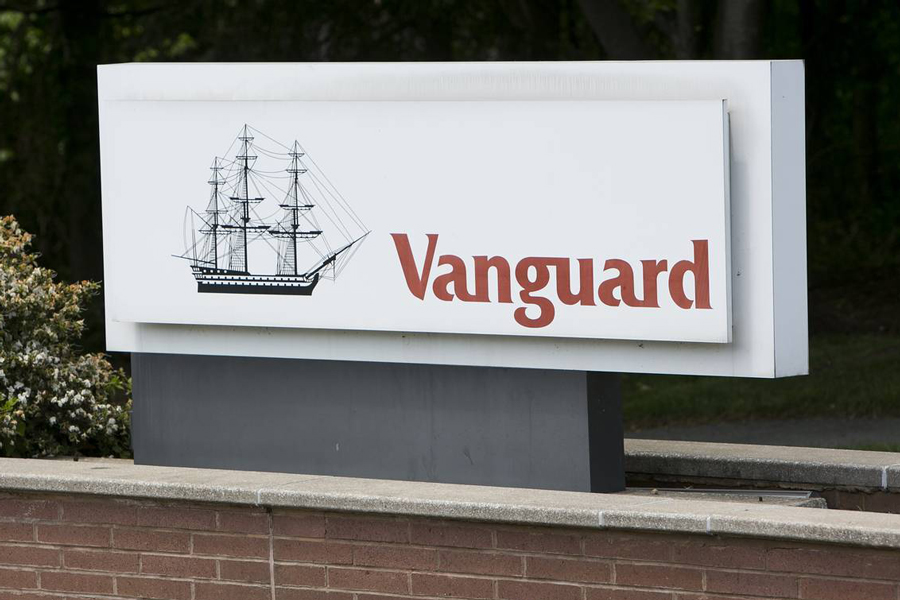The Vanguard Group, citing efficiencies and lower fees, is combing two big actively managed large-cap growth funds to create one really big fund.
By the end of March, investors in the $15.1 billion
Vanguard Morgan Growth Fund (VMRAX) will be folded into the $10.2 billion
Vanguard U.S. Growth Fund (VWUAX), the company announced Monday morning.
(More:
Vanguard wrestles with new service problems)
Fund mergers happen all the time, but what's unique about this one is that it combines two large, low-cost funds with solid track records.
Often times
when funds are merged, it's done to erase a weak performance history, or to rescue a fund that is struggling to attract assets.
"What's interesting about this is Vanguard funds are cheap to begin with, and the most expensive of these two funds is 43 basis points," said Todd Rosenbluth, director of mutual fund and ETF research at CFRA.
Once combined, Vanguard U.S. Growth Fund will adopt the fees from the larger Vanguard Morgan Growth Fund of 38 basis points for the investor share class and 28 basis points for the Admiral share class, which requires a $50,000 minimum.
For perspective, consider that the
average actively managed large-cap growth fund has an expense ratio of 1.1%.
"The trend is toward lower-cost investing and that has helped Vanguard gather assets, but this is a sign Vanguard doesn't believe fees are as low as they could be," Mr. Rosenbluth said. "There is pressure for firms to bring cost down and compete for adviser and investor attention. It's exciting to see this happening, but it needs to happen more broadly."
As part of the consolidation, Vanguard is also juggling the underlying management teams of these two multimanager funds, which has raised criticism from Dan Wiener, editor of The Independent Adviser for Vanguard Investors.
According to Vanguard, four current subadvisers of the U.S. Growth Fund will be retained, including Wellington Management Company, Jackson Square Partners, Jennison Associates, and Baillie Gifford Overseas.
The Vanguard Quantitative Equity Group will be added to the management team.
Subadvisers Frontier Capital Management and William Blair Investment Management are both being cut from the combined fund.
"These two funds are very similar and are a mishmash of multiple managers," said Mr. Wiener. "Vanguard clearly thinks that rather than having seven different managers running a large-cap fund, it's better if they combine five managers. But the multimanager thing at Vanguard has been kind of a loser."
(
More: Vanguard isn't taking in as much money; neither is anyone else)
Citing the
2014 decision to merge the $4.4 billion Vanguard Growth Equity Fund into the U.S. Growth Fund, Mr. Wiener said the U.S. Growth Fund is becoming a "repository."
"What they're going to have is a monstrous growth fund," he said. "The evidence is clear that when they add underlying managers, the fund performance suffers."
The Vanguard U.S. Growth Fund is up 4.81% this year through Friday, which compares to a 1.06% large-cap growth fund category average, and a decline of 90 basis points by the S&P 500 Index over the same period.
The fund's five-year average return is 12.02%, compared to a category average of 9.76%, and 10.17% for the S&P.
The Vanguard Morgan Fund is up 1.91% this year and has a five-year average return of 11.19%.
In response to Mr. Weiner's criticism of the multimanager approach, Vanguard spokeswoman Emil Farrell emailed the following:
"We first adopted the multi-manager approach in 1987 and are strong proponents of the strategy. We believe the combination of high-caliber investment management teams with differentiated but complementary strategies can reduce portfolio volatility, provide potential for long-term outperformance, and mitigate manager risk."
The fund merger will not trigger any tax consequences for shareholders of either fund.







